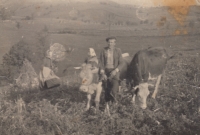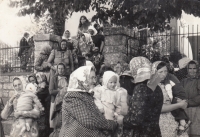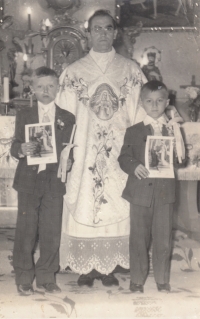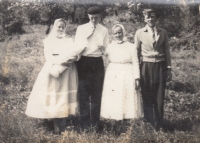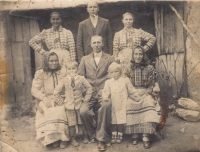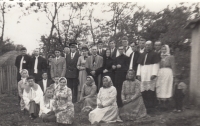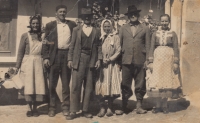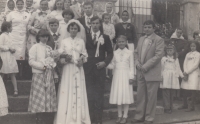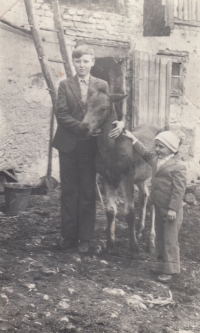Lojza was leading a cow and weeping, he died in exile in Bãrãgan
Download image
Josef Hána was born on 16 March 1945 in the Czech village of Svatá Helena in the Romanian Banat. He was the first of four children of František and Alžběta Hána. His father sold various goods in a state-owned shop there. From an early age he was involved in seasonal work on the farm. Their relatives emigrated to Czechoslovakia after the war. In June 1951, the witness witnessed the occupation of the village by military units and the subsequent deportation of the Kovařík family to the Bãrãgan area. During the absence of another deported farming family, the Klepáček family (in 1951-1956), the state-owned shop was to be moved to their house, and upon their return from deportation, the shop was to be vacated and moved to other premises. After returning from military service in 1969, he joined the Suvorov coal mine and worked there for nearly 23 years. He was repeatedly offered membership of the Communist Party. He also lived through the events of the revolutionary changes of 1989 in the mines. He heard the news of the execution of dictator Nicolae Ceausescu and his wife Elena at the end of his shift. In the 1990s, after the decline and cessation of mining, his sons left for the Czech Republic and in 2001 he and his wife joined them. He managed to go through several more jobs before retiring. At the time of recording (April 2024), he was living in Plesná in the Cheb region.
